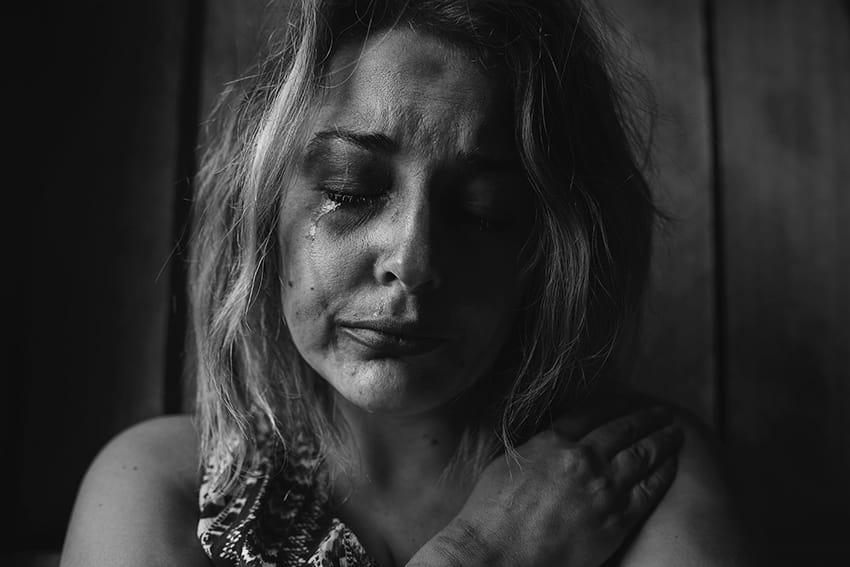With the spread of Covid-19, people are required to stay in their homes as part of “Shelter In Place” orders. For victims of domestic violence, the virus is being used as a tool for control, because Shelter in Place rules force couples to remain home, where the abuser has more power to control and abuse the victim, who can’t or won’t leave for fear of catching the virus. It can also make it more difficult for victims to report domestic violence because they are always with their abusers, where normally they might seek relief at work or school.
According to New Jersey’s Department of Children and Families, there could be as much as a 50% increase in domestic violence cases following a disaster, such as a hurricane or an earthquake. What makes the COVID-19 pandemic so unique is that there is no way to predict when it will end. Experts unfortunately predict a spike in domestic violence cases worldwide, but it is difficult to determine the impact the virus has had on domestic violence situations right now. Police departments have been experiencing an increase in domestic violence calls nationally and expect them to increase as the emergency rules are extended. Cities such as Hoboken, New Jersey, have seen a slight increase in calls for simple assault and harassment since the shelter in place rules started.
Also, the New Jersey Supreme Court recently issued an order releasing certain jail inmates which has added to anxieties for domestic violence victims. For example, in Monmouth County, at least one inmate who qualified to be released had multiple convictions of domestic violence. While the Prosecutor’s Office will have the chance to object to the release of inmates like this one, it is still a problem. Adding to the challenge is the limitations on the primary legal remedy domestic violence victims have available, since the courts are closed and police departments overwhelmed.
In New Jersey, victims may continue submitting applications for temporary restraining orders and other emergent and safety matters. Recently, a press release by the State Supreme Court announced that municipal court sessions were suspended for two weeks in response to the COVID-19 coronavirus with the exception of application for temporary restraining orders, hearings where a defendant has been detained, and matters that implicate public safety.
In weeks after that, as the Court began to shift in-person proceedings to virtual proceedings, all emergent applications as well as Extreme Risk Protective orders and domestic violence temporary restraining orders submitted through local police departments were still being accepted. On March 27, 2020, the Supreme Court issued an order extending the deadlines for the suspension of in-court proceedings and other matters in light of the ongoing public emergency caused by Coronavirus COVID-19 for an additional 30 days. Also, in an effort to deter abuse during disasters, State Sen. Declan O’Scanlon, R-Monmouth, introduced a bill that would allow prosecutors to impose harsher penalties for domestic violence cases during a state of emergency.
While this is a difficult time for everyone, especially those who are unable to seek help from abuse, shelters and support services continue to operate during the pandemic, however, some programming may be limited or offered remotely in order to ensure the safety of staff and clients. First, domestic violence victims should not divert from whatever safety planning they have already done. In other words, whatever has worked in the past such as reaching out to programs or seeking shelter or speaking to family and friends should continue. Advocates and counselors are still working during the pandemic by helping their clients connect to resources and get help, even though that means adjusting to social distancing guidelines. Recently, Attorney General Gurbir Grewal offered resources for anyone experiencing domestic violence during the coronavirus pandemic. He urged them to visit www.njcedv.org. The New Jersey Coalition to End Domestic Violence also posted on its website a document full of resources, “Increasing Survivor Safety During COVID – 19.”
The statewide domestic violence hotline is available at 1-800-572-SAFE (7233), and can help direct survivors to the resources closest to them. The National Domestic Violence Hotline’s Deaf Videophone is available to assist Deaf survivors at 1-our office. You can also chat or text with an advocate by going to the National Domestic Violence Hotline, click on “Chat Now”; or text LOVEIS to 22522.
Sadayah Q. DuRant is a recent graduate of Rutgers School of Law, where she was Editor of the Race and The Law Review Journal. We are pleased to introduce her as a new contributor.


